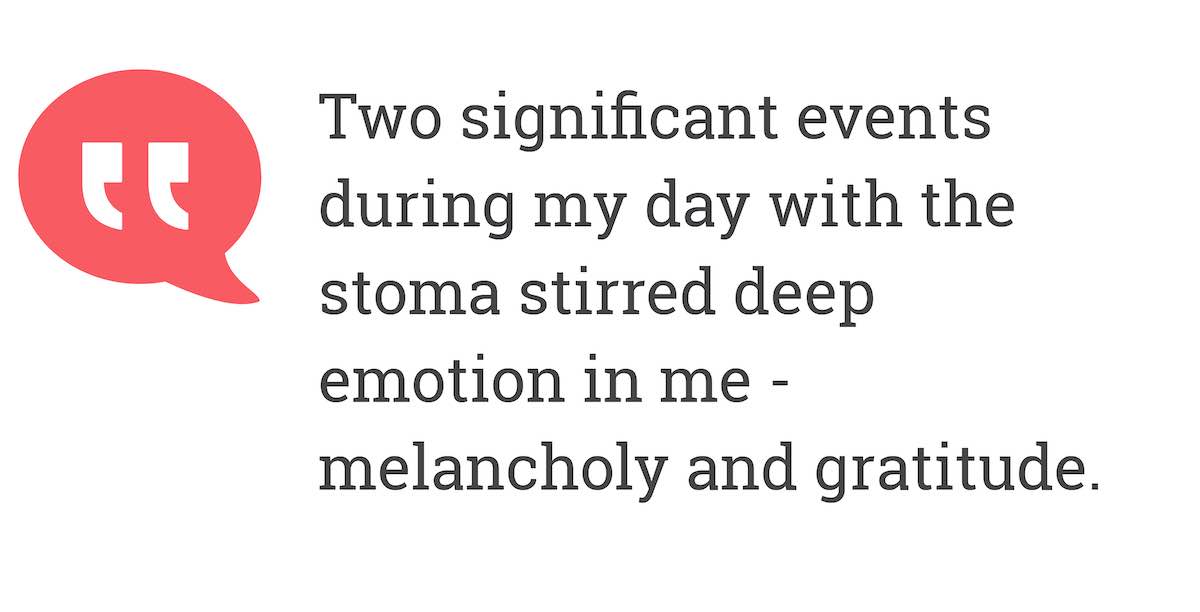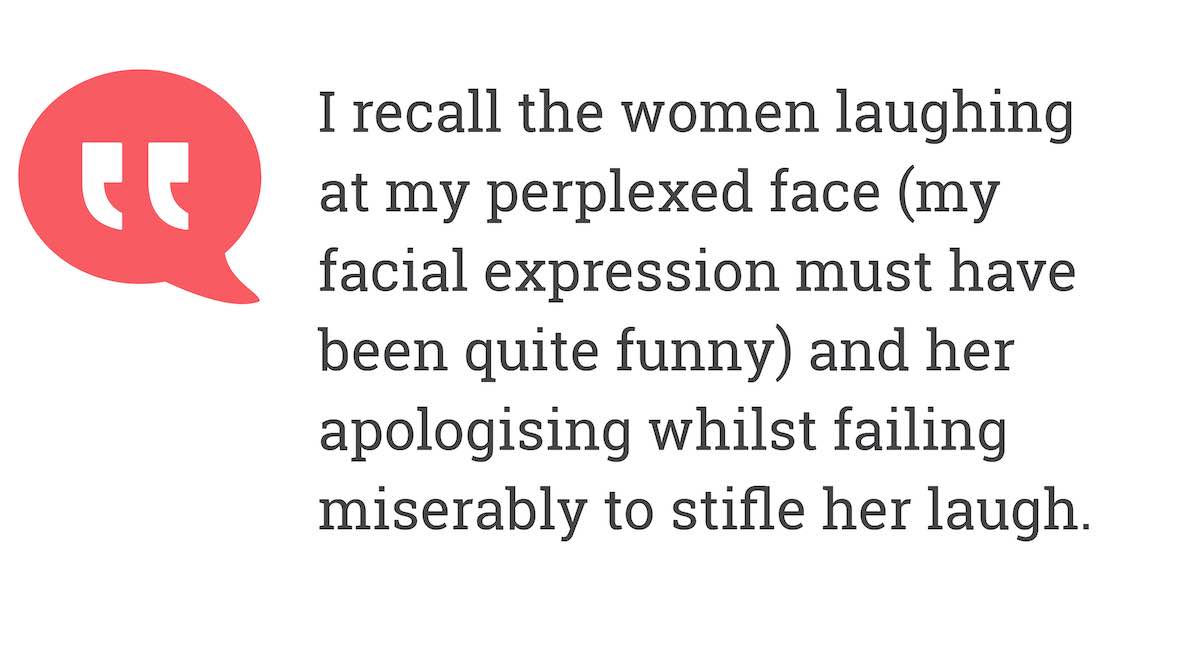
Shadowing can grant you valuable insights into a range of different disciplines. Student Nurse, Janet, gives her experience of shadowing on placement, and why as a Student Nurse it is a must.
Topics covered in this article
Shadowing A Healthcare Assistant
What I Learnt From Shadowing A Stoma Nurse
What I Learnt From Shadowing A Dietician
Introduction
Hey everyone, I hope you are all well!
Welcome to my second part of my three-part blog, where I will be discussing the healthcare professionals, I shadowed during my first placement.
I was fortunate in shadowing a range of healthcare professionals during my first ever placement!
A top tip I would give first years is, make sure that you put yourself out there and ask different healthcare professionals to shadow them whether it's for a day or an hour.
Shadowing A Healthcare Assistant
I think it's fair to say the first healthcare professional I followed was the Healthcare Assistant to get my head around the ward.
I was able to witness firsthand the amount of stress they are put through especially when there are shortages in staff much like nurses.
I assisted with a range of duties being the fundamental building blocks to aid me in my nursing training like how to communicateeffectively with patients, taking and recording basic observation, and looking after the physical comfort of the patients.
Shadowing a Stoma Nurse
I shadowed a Stoma Nurse; it was the idea of the nurse I was paired up with.
She explained to me since I am in a surgical ward, where patients are admitted due to having problems with their pancreas and hepatobiliary; many patients would've undergone surgery to create a stoma and will be adjusting to their new life with a stoma.
For the readers that do not know what a stoma is, a stoma is an opening on the abdomen connected to either your digestive system (colostomy) or urinary system (ileostomy) to be diverted out of your body (Bladder & Bowel Community, 2020).
Patients tend to have this surgical procedure due to having one of these following: cancer (such as bowel, anal, cervical), bowel incontinence, Hirschsprung's disease, Crohn’s disease, diverticulitis, and ulcerative colitis.
My initial reaction to seeing a colostomy was shock that something obvious could be hidden under a person’s top.
What I Learnt From Shadowing A Stoma Nurse
Shadowing the stoma nurse for the day was one of the best days I had during placement.
We went to various wards from my home ward to the orthopedic ward; advising patients with a colostomy or ileostomy on how to keep surrounding skin clean and preventing infection, teaching patients how to care for their stoma especially emptying and changing the bag.

Two significant events during my day with the stoma stirred deep emotion in me - melancholy and gratitude.
The first incident was following the Stoma Nurse to the urology ward; I was met with a person of similar age to me.
Our goal was to check whether he could change his stoma bag.
This male had been living with Crohn’s disease; therefore, the doctors thought it would be best for him to have a colostomy to help him lead a ‘normal’ life.
I watched as he cleaned his new stoma with care using all the supplies the Stoma Nurse had put in his stoma supply bag.
I could tell from his facial expression that he was still coming into terms with his new attachment, instantly I experienced a wave of sadness through me.
After the stoma nurse gave him more supplies for his bag and advised him how often to change his bag: I spoke about the concern I had for the patient.
I wanted to know how he would be able to cope with such a life-changing surgery (especially at his age), with the inconsiderate partners he may have in the future thinking his stoma is ‘disgusting’ or even his self-confidence.
Will he be confident in going to the beach?
Each trip he would have to make in future being pre-planned, making sure that he has all his Coloplast equipment a popular brand used for an ostomy.
The Stoma Nurse explained it to me that the colostomy had giventhe patient an improved quality of life and will put him in a better position before; immediately, I began to feel a sense of relief.
Visiting the Children’s Ward
I was also able to visit the children’s ward with the stoma nurse (although I do adult nursing) where we visited a 7-month-old baby, with a recent colostomy stoma in place.
This incurred by apart of his bowels dying (Intestinal ischemia) during surgery.
The baby was fast asleep by the time we had arrived, with his mum perched over the baby’s cot, admiring every small puff the baby exhaled.
I remember the Stoma Nurse discussing with the baby’s mother how the baby has been, regarding his new stoma and the mother making a joke out of the situation “At least I don’t have to change his nappy every day”.
I was in awe that a baby so young could have a stoma later it was explained to me that there is a possibility that the stoma could be reversed, meaning that he wouldn’t have to spend his whole life with a stoma.
Later that day, I landed in an explosive poop situation.
One of the patients on the ward I was on needed a refitting of a stoma bag, as the last stoma bag had been placed incorrectly; consequently, causing leaks.
The Stoma Nurse had removed the incorrect stoma bag and realised that she forgot her equipment on the other ward.
I was instructed to stay with the patient while she retrieves her equipment.
As I began chatting with the friendly patient, I realised her stoma had begun working.
One thing you need to know is, unlike the rectum where there are anal sphincters that surround the anus to help control the release of stool - a stoma does not have that.
This means there is no voluntary control over the person's bowel movements.

I recall the women laughing at my perplexed face (my facial expression must have been quite funny) and her apologising whilst failing miserably to stifle her laugh.
My brain automatically turned to serious mode as I grabbed the clean towel beside me and pressed the stoma down softly and cleaned up the excess poo running down her stomach.
I also learnt at that moment that a stoma has no nerve endings,meaning it does not transmit pain or other sensations, although many blood vessels could erupt if rubbed roughly or irritated.
Shadowing A Dietician
The next healthcare professional I shadowed was the Dietician; it was partly due to my slight consideration of wanting to become a Dietician before I made the solid choice of choosing the profession of nursing.
However, being in the Urology and Hepato-Biliary and Pancreatic Surgery was a great opportunity to shadow the Dietician as most individuals need enteral feeding, parenteral nutrition, and pancreatic enzyme replacement therapy.
It started with following the doctors on their morning rounds along with the Dietician to understand better the need of the patients.
We then spilt up with the doctors to go back to the Dietician’s office to evaluate the patients we were going to see today.
During the day, we visited patients who needed follow-ups, not eating, and with varied therapeutic diets.
The first few patients we checked on had either chronic pancreatitis (inflammation of the pancreas) or pancreatectomy (the surgical removal of some or all the pancreas).
With both conditions, the patient becomes unable to make enough enzymes (pancreatic proteases, pancreatic amylase, pancreatic lipase) to digest food.
It was on that day I discovered Creon was the holy grail for Dieticians.
Creon capsules encompass the three pancreatic enzymes and are taken around the same time as food with every meal and snack.
The capsules have various strengths with a starting dose of 40,000-unit capsules, taking between 1 and 3 for each meal or snack, with a discussion of which strength would be more suitable.
What I Learnt From Shadowing A Dietician
Later that day, I sat in the Dietician’s outpatient office watching the Dietician review her patients for the afternoon; identifying all the needs of the people to visit.
Who needed a follow-up, who were not eating, patients needing varied therapeutic diets.
I remember this middle-aged woman and her daughter being the first person in the Dietician’s office.
This middle-aged woman, who had been suffering from anorexia; it was evident her daughter was struggling with the fact that her mother was anorexic.
This appointment was just a follow-up appointment; however, the daughter was fed up with having her mother ‘this way’ and began venting about how easy it is to eat and how her mother had not been trying to follow the advice which was agreed on in the meeting prior.
I don’t believe she meant to sound condescending, rather it came from a place of hurt and frustration.
Having a mother, she so dearly loved with a visible mental health condition, her body being a constant reminder.
After the appointment, I asked the Dietician how family normally react to a member being anorexic.
She responded by saying “Most families feel a burden of guilt, thinking somehow they contributed to it, although majority of the time it is nothing they did, they did but rather the individual’s thought process’.
This statement resonated with me, especially looking back in life to things in my own life.
Overall, I can confirm that the highlights of my placements must’ve been shadowing these healthcare professional and something I will be doing more often in placement.
Thank you for reading!
Let me know in the comments your thoughts on shadowing during a placement and what I've said about my experience - let's chat there!
Oh, and please Like this article to let me know you enjoyed it - thank you!
About the author

Janet Mensah
First Year Student Nurse
I am a first year student studying a BSc in Adult Nursing at the University of Southampton. I decided to step into the world of nursing due two events in my life. One was being in hospital myself for a short period of time and seeing how lovely and kind the nurses were to me. The second event was watching my cousin go into nursing and listening to her stories about the patient care she was able to give - it really inspired me.
The blog was taken from - Nurses.co.uk
